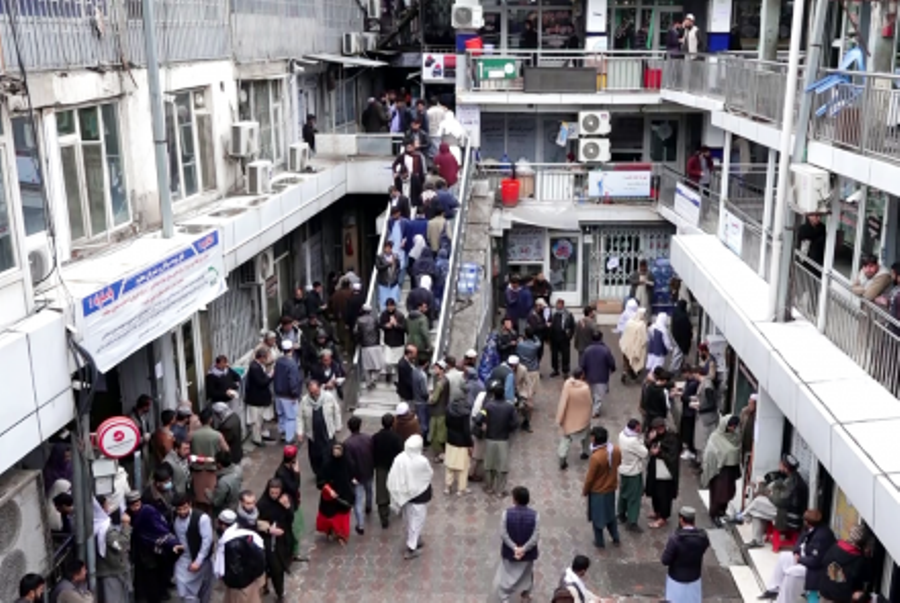The Union of Currency Exchangers of Shahzada Market in Kabul backed a decision by the Central Bank to cancel individually-run money exchange businesses and allow bigger-format entities to provide services in the market.
A spokesman of the union, Abdul Rahman Zirak, said the decision will provide the ground for better business and more oversight over currency exchange businesses.
“If the company’s permit is transparent, the Central Bank grants it a user account, and all of its activities are supervised like a private bank,” Zirak said.
Meanwhile, a number of currency exchangers asked the Islamic Emirate to provide them with more resources.
“The Islamic Emirate should cooperate with us and facilitate our activities,” said Munir a money exchanger.
Analysts said that providing permits to companies that offer currency exchange services will increase transparency in financial transactions and will help the implementation of monetary policy.
“Money changers who operate without a permit in the capital and provinces, their source of money should be checked in terms of money laundering and terrorist funding,” said Siyar Qureshi, an economic affairs analyst.
“The implementation of the policy will result in the loss of multiple jobs at once, and it is also predicted to reduce people’s income,” said Darya Khan Bhair, an analyst.
According to figures from the Union of Currency Exchangers, over 800 currency exchange businesses have received permits while at least 4,000 permits for currency exchange businesses run by individuals have been cancelled due to the Central Bank of Afghanistan’s order.













